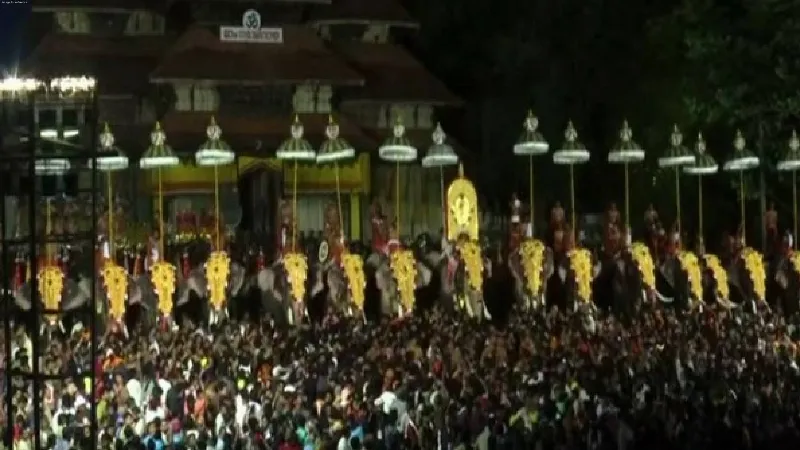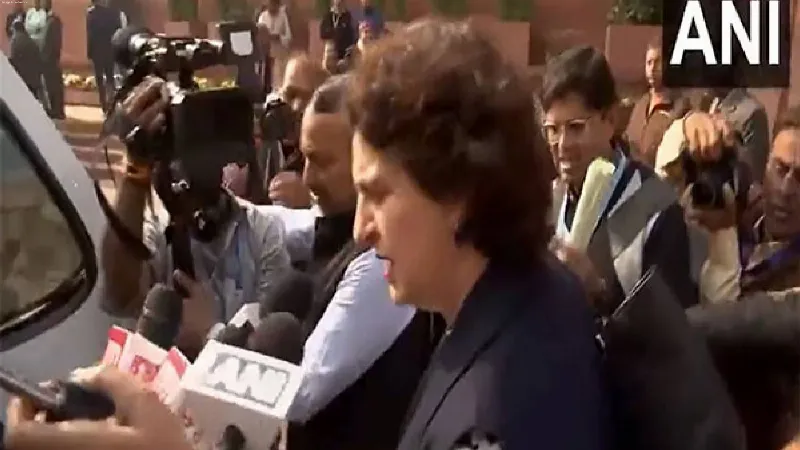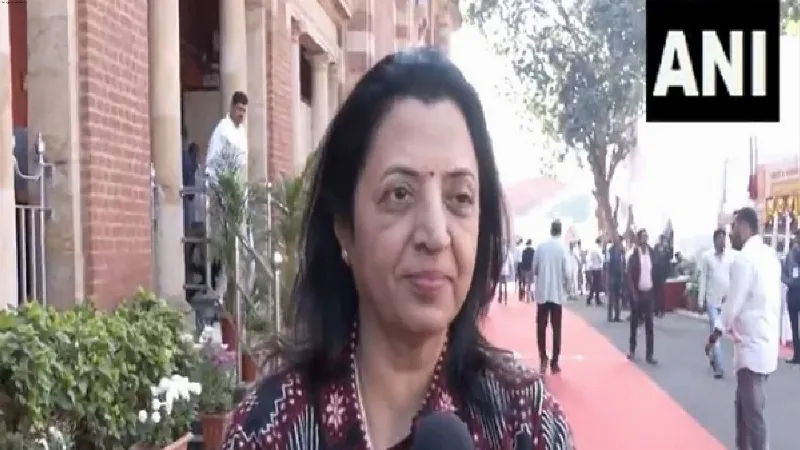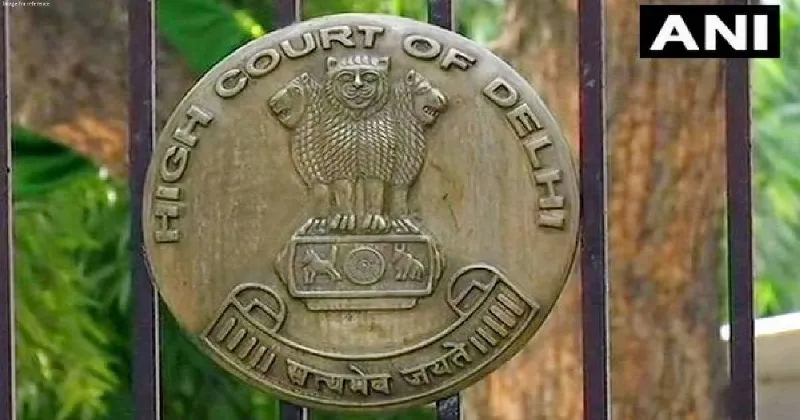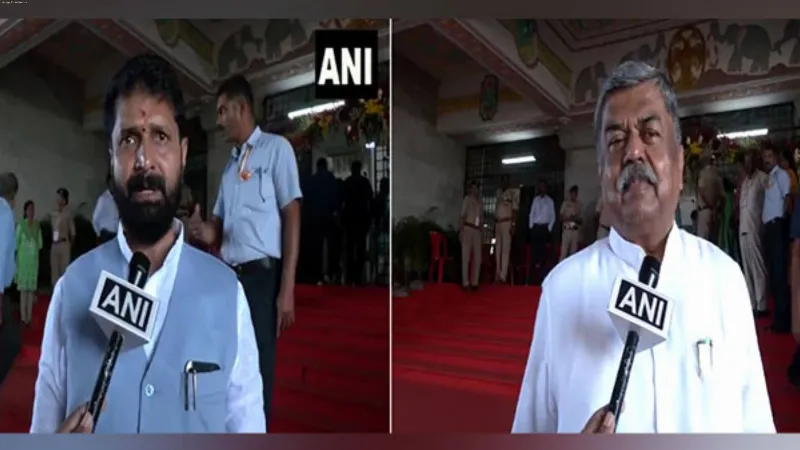Latest News
"This is a country full of diversity, it is not possible": Congress' Imran Masood on 'One nation, one election' bill
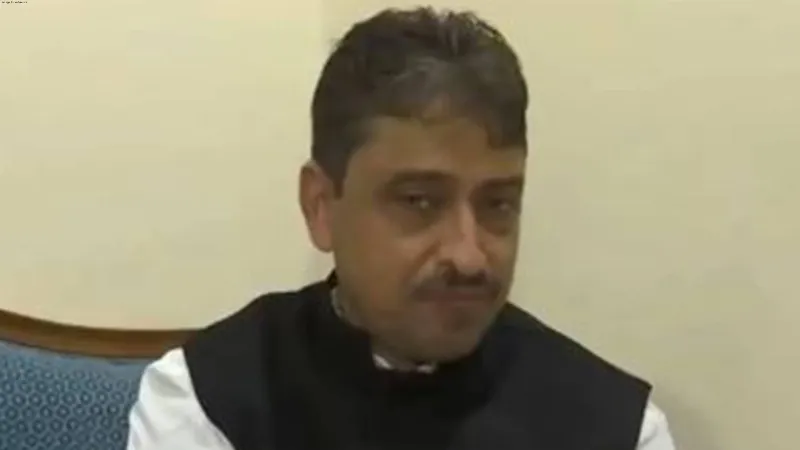
New Delhi: Congress MP Imran Masood criticised the introduction of the Constitution (129th Amendment) Bill, 2024 in Lok Sabha on Tuesday and said that this is a country full of diversity dubbing the process as impossible.
Speaking to ANI, Imran Masood expressed concern regarding the implementation of the Bill and said that "how it would be possible within the federal structure to hold elections together."
"It would be too early to say anything; let the bill come. I don't understand how it would be possible within the federal structure to hold elections together. This is a country full of diversity; it is not possible. What seems impossible--how will they make this possible? It is beyond my understanding. They will have to purchase EVMs worth Rs 10,500 crores. From where is the money being saved?" he said.
Congress MP Manickam Tagore said that there has been no consultation and alleged that the ruling party wants to "grab the headlines."
"We reject the bill, and we will oppose it. There has been no consultation, no proper thinking about it. They want to grab the headlines and divert attention from real issues," Tagore said.
"We have been very clear in our stand that it is against the federal nature, against democracy, and against the multiple voices of India. The government wants to kill those multiple voices. We all know that this is not possible with this number in BJP--only with 240 MPs. A two-thirds majority is not possible for them. So, they also know that this is not possible. They have to refer this bill to a Parliamentary Committee," he added.
Karnataka Congress MLA Rizwan Arshad also criticized the bill, and said, "This bill has been brought to divert people's attention and to prevent the opposition from raising questions on many issues. This bill will not see the light of day as far as I am concerned."
Earlier in the day, the Constitution (One Hundred and Twenty-Ninth Amendment) Bill, 2024' and 'The Union Territories Laws (Amendment) Bill, 2024' was formally introduced in Lok Sabha after members voted on it. The bill proposes 'One Nation One Election' or simultaneous elections to both Lok Sabha and state assemblies. The bill will be sent to a Joint Parliamentary Committee (JPC) for detailed discussions.
The Speaker of the Lok Sabha announced the result of the vote on the introduction of the bill in the House. The vote showed 269 members in favour (Ayes) and 196 against (Noes). This followed Law Minister Arjun Ram Meghwal's formal introduction of the Constitution (129th Amendment) Bill, 2024, on 'One Nation, One Election' and his agreement to send the bill to a JPC in response to Union Home Minister Amit Shah's statement.
Meghwal also introduced a bill to amend the Government of Union Territories Act, 1963, the Government of National Capital Territory of Delhi Act, 1991, and the Jammu and Kashmir Reorganisation Act, 2019, as per the day's schedule. These amendments aim to align assembly elections in Delhi, Jammu Kashmir, and Puducherry with the proposed simultaneous elections.
Congress MP Manish Tewari opposed the move in the House, arguing, "Beyond the seventh schedule of the Constitution is the basic structure doctrine, which spells out that there are certain features of the Constitution beyond the amending power of the House. The essential features are federalism and the structure of our democracy. Therefore, the bills moved by the Minister of Law and Justice are an absolute assault on the basic structure of the Constitution and are beyond the legislative competence of the House."
TMC MP Kalyan Banerjee said, "This proposed bill hits the basic structure of the Constitution itself and if any bill affects the basic structure of the Constitution, it is ultra vires. We must remember that the state government and the state legislative assembly are not subordinate to the central government or to Parliament. This Parliament has the power to legislate law under the Seventh Schedule, List One and List Three. Similarly, the state assembly has the power to legislate law under the Seventh Schedule, List Two and also List Three. Therefore, by this process, the autonomy of the state legislative assembly is being taken away."



